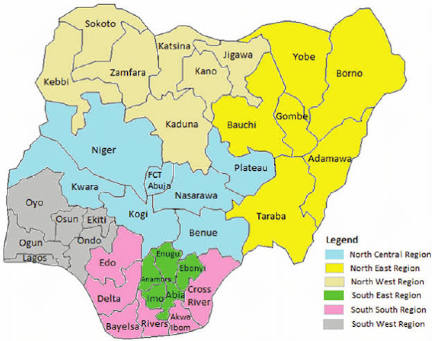Opinion
FORCED MARRIAGES: THE SECURITY IMPLICATION FOR VICTIMS AND THEIR FAMILIES
By Our Correspondent
Slavery has undergone dramatic changes over the years. Unlike the traditional colonial slavery where able-bodied men were captured and placed aboard ships to go and work on plantations overseas, the modern day slavery is said to centre primarily around commercial sex work activities. A situation where young girls, with the connivance and sometimes active support of their parents, leave the shores of the country for commercial sex work. Efforts of successive administrations have helped to stem this menace, at least, to an extent.
However, there is a different form of slavery that is now going on and quickly becoming rampant. A slavery that is far worse than that of the commercial sex workers. This is the situation where under-aged girls are given out in marriage usually for the financial benefit of their parents. When we say underage, we refer to girls 12 years and younger. A most recent case involved that of a Senator from Zamfara State, Sahabi Ya’u, a 54-year old man who married a young girl, Zainab Isa Mayana. The girl was so young that in order to avoid public embarrassment, she was represented by her father. Considering that the senator in question was already married with wives and children, it would appear there may be other reasons on the part of the senator for this kind of marriage. There are grapevine episodes that, traditionally, marriage to such a young girl is a vital requirement for the making of very potent charms both for protection and advancement. As to the reasons for the child’s parents’ involvement in this forced marriage of their wards, poverty and the need for money is a most ready answer.
When the above matter was challenged in court the presiding judge, Justice Isiyaku Mohammed, ruled that under the constitution, the federal court could not intervene in matters for an Islamic court.
A similar but most disturbing version of this shameful development is the recent wave of forced marriages , where prominent men of the community, usually chiefs, take on second, third and fourth wives who are often young girls (young enough to be their daughters). Sadly, when these young girls turn down their offer of marriage, the rude and arrogant chiefs usually subject their families to all forms of physical and emotional torture. Unfortunately, those who are caught in this form of abuse are usually girls from very poor background whose parents can neither do anything to protect them.
If one was to think the above scenario was only restricted to the North of Nigeria, one would be grossly mistaken. Examples and instances where similar cases have reared their ugly heads abound in the South. A most notable one was what happened some time ago at Sapele, near Warri in Delta State, Nigeria where thugs on order attacked a couple who were on holidays from the United Kingdom, mistaking them for a different couple. It was later gathered that the thugs were on the hunt for one “Kenneth” who lives in London and who had assisted his younger sister, Onome, sometime in 2004 escape to the United Kingdom to prevent her from being forced or subjected to marry one Chief Thomas Amigba, a powerful and influential person in the community with strong affiliations to notable militant groups in the Niger-Delta State, against her will.
The Kenneth dared defy this chieftain and helped both his sister and the man she loves and wanted to marry, Stephen, escape to the United Kingdom. However, anytime information comes that Kenneth was around, the Chief gives the order that he should be fished out and dealt with.
Sadly, once the issue of rape, oppression, kidnapping and their attendant vices are mentioned, especially in the Niger Delta region of Nigeria, accusing fingers are pointed at abstract figures and shadows. Nobody takes responsibility for these menace and the effects on the innocent victims and their families.
More often than not, militancy and other forms of unrest in the Niger Delta are blamed on unemployment, underdevelopment and large-scale squandering of public fund by the various governments of the day. In as much as these are highly contributory factors and undeniable realities, one must call public attention to this stark but unnoticed aspect of social criminality, traceable to local chiefs and influential individuals who use their power, money and influence to take undue advantage of the poor especially young women in their localities to commit all forms of atrocities and they become a ‘thorn in the flesh’ of the very people they are meant to naturally neighbour or “lead” or even help.
Our local chiefs who were originally custodians of societal traditions and, in time past, were highly respected and revered are now feared or abhorred because of their mindlessness and greed for personal aggrandizement.
They take advantage of the respect accorded them in their various communities where they live and continue to perpetuate all forms of abuses on their own people, from misappropriation of funds meant to develop their communities, to oppressing these hapless people with questionable acquisition and wealth.
Cases like these abound all over the country and it is high time the government takes a proactive role in the fight against these kinds of abuses. A more effective law against both forced and underage marriages should be enacted, and urgently too, so as to stem in the bud, this latest slavery in new clothing.

